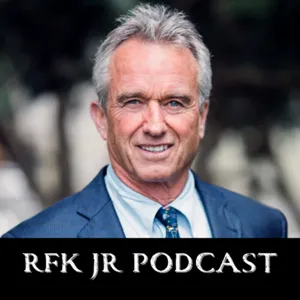Podcast Summary
Addressing PFAS in Drinking Water: The EPA sets limits on PFAS in drinking water for the first time, and large-scale granular activated carbon filters and reverse osmosis membrane filters are effective solutions to remove these chemicals. However, these methods produce waste and it's essential to reduce the use and production of PFAS to prevent further contamination.
While forever chemicals, such as PFAS, have brought convenience to our lives through non-stick cookware and stain-resistant clothing, they have also contaminated our water sources and have been linked to health issues with no known safe level of exposure. To address this, the EPA is setting limits on PFAS in drinking water for the first time. One solution to remove these chemicals from water is through the use of large-scale granular activated carbon filters, which work by the PFAS molecules adhering to the carbon and being removed from the water. Another method is reverse osmosis membrane filters, which have tiny pores that retain the chemicals, leaving clean drinking water on the other side. However, these processes produce waste. It's important to note that while these technologies offer a solution to the issue of PFAS in drinking water, it's crucial to continue reducing the use and production of these chemicals to prevent further contamination.
Challenges in removing PFAS from drinking water: While filters like GAC and RO can remove PFAS, long-term disposal and destruction remain challenges. Regular filter changes and advanced countertop filters are effective options.
While it's possible to remove forever chemicals like PFAS from drinking water using filters and technologies like granular activated carbon and reverse osmosis, there are still many questions and challenges that need to be addressed. Regenerating or disposing of spent activated carbon media is a long-term issue, and there are concerns about the potential air pollution from incineration, which is currently being used to destroy these chemicals. For consumers, filters like granular activated carbon and reverse osmosis are effective options for removing PFAS from home drinking water. However, it's important to remember to change out the filters regularly. Additionally, there are more advanced and effective countertop filters available for those who want to filter out these chemicals at home. Innovation in water filtration technology is ongoing, and it's important for individuals and policymakers to stay informed about the latest developments and best practices. Overall, while there are solutions for removing PFAS from drinking water, there is still much work to be done to address the long-term disposal and destruction of these chemicals.
PFAS Filters: Not All Are Created Equal: While some filters effectively remove PFAS, others like carbon filters are not, and the EPA's finalization of PFAS drinking water standards is crucial for better water quality and cost transparency.
While some pitcher-type filters can effectively remove a significant amount of PFAS from water, not all filters are created equal. Simple carbon filters like Britas are primarily designed to remove taste, odor, and chlorine, and are not very effective at removing PFAS. The cost of in-home drinking water filters can vary greatly, making it important for the EPA to finalize PFAS drinking water standards to ensure better water quality for all. Historically, some PFAS manufacturers had evidence of their toxicity as early as the 1960s, but it wasn't until the late 1990s that the public became aware of their potential dangers. Recently, the EPA announced its first-ever limits on PFAS in drinking water, which have already been subject to lawsuits by water utilities against the manufacturers.
Discovering Hidden Health Risks and Advocating for Transparency: The DuPont chemical plant incident showcases the importance of understanding potential health risks and advocating for transparency, while Million Bazillion podcast simplifies complex money topics for kids.
Sometimes, the world can present us with complex and confusing issues, especially when it comes to our health and safety. In 1981, at a DuPont chemical plant in West Virginia, female workers were moved away from certain areas without proper explanation. Years later, it was discovered that their babies were born with various health issues, some linked to PFAS exposure in the cord blood. This incident highlights the importance of understanding potential health risks and advocating for transparency. Meanwhile, for kids, navigating the world can be just as confusing, especially when it comes to money. That's where Million Bazillion, a podcast from Marketplace, comes in. Each episode addresses kids' tough questions about money, making the complex topics more accessible and engaging. So whether it's understanding what unions are or how college savings accounts work, Million Bazillion is a valuable resource for parents and kids alike.






